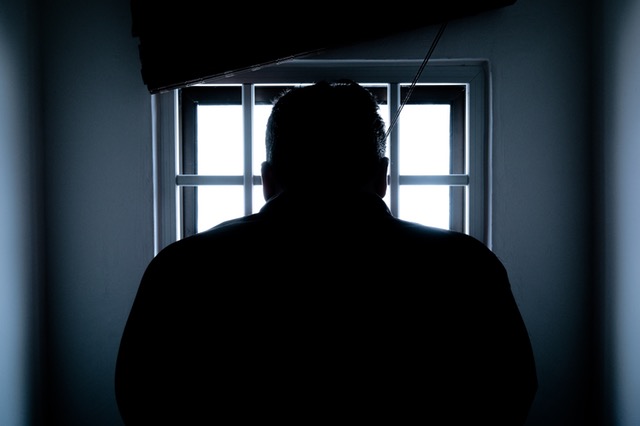According to the Zimbabwe National Statistics Agency, on average, fifteen (15) women are raped in Zimbabwe every day. This means that one woman is raped every 90 minutes.
Many of these women do not know what to do to protect themselves and to ensure that the law helps them in the aftermath of this tragedy Although nothing can really prepare someone for the trauma of being raped, here are a few tips on what to expect in regards to the legal requirements of reporting rape.
Preserve the evidence
It is important to preserve evidence of the crime and to prevent the accused person from finding a way to deny any wrong-doing. The best thing is not to bath. That way any hair, blood, saliva, or other DNA samples that could help catch the rapist will be preserved.
However, it is understandable that after being raped, you will want to “wash off” any reminders of the terrible act committed on your body. In that case ensure the evidence on your clothes and body is not lost. Do not douche or soak in the tub. Do not throw away the clothes that you were wearing when you were raped and do not wash them (including your underwear). These clothes can contain important evidence, such as saliva, semen, and blood that could help identify your rapist. If the rape was violent and the assailant violently tore off the clothes, the police will also use the ripped clothes as proof of a violent crime.
Go to the police – if that is not possible, call them
Immediately go to the nearest police station and make a report to the police. This will enable the police to begin investigations immediately and hopefully to catch the rapist before they can escape. If for any reason such as injury, fear, or paralysis you cannot report, call the police. They should come to you as they have a responsibility to respond to distress calls (calls for help by citizens especially in circumstances where a crime is being committed).
If you go to a police station, you should request to speak to the Victim Friendly Unit. These are police officers who are specially trained to assist citizens who report sensitive crimes such as rape. These police officers should interview you in private. Should they fail to do this, you have grounds to file a complaint to the officer in charge of that police station. These officers will ask you many questions. Although some of these questions may sound rude, such as: Did he penetrate your vagina with his penis or did he use something else?, please try to cooperate as much as possible. The police should not insult you or call you names. If they suggest that you deserved to be raped, that is grounds for filing a complaint with the Officer in Charge. The police should help you to get all the medical attention you need.
Late report
Although we would advise that you report immediately after the rape has occurred, if you do not feel ready to report, then you can report at any other time in your life when you feel ready to make the charge. There is no time limit or restriction on when a charge of rape may be made. You should not be discouraged and in fact, you should report any police officer who tries to turn you away or to discourage you from reporting for misconduct. The problem with reporting rape late is that it will be harder to prove your case. Also, you will have missed out on the opportunity to get critical health-care that victims of rape should receive. If you also happen to fall pregnant from the rape, it will be difficult to be allowed to abort without the police report.
Seek medical help
A victim friendly and considerate system would allow a rape victim to go to the hospital first, and then allow the police to seek a statement and procure evidence during the receipt of medical care since nurses and doctors know how to preserve evidence in rape cases. Such an approach would be more humane, but often in Zimbabwe, systems are different. Some hospitals will demand that you go to the police before seeking medical help.
The services of the Adult Rape Clinic in Harare offer a good example of how things should be done. They allow victims of rape to go directly to them before reporting to the police. The Clinic then calls the police to come and speak with the victims at the Clinic.
The medical examination will attend to wounds (such as tearing of the vagina, cuts, and bruises) that may have resulted from the rape.
The Clinic/hospital must administer Post Exposure Prophylaxis (PEP). PEP is a process by which a combination of anti-retroviral drugs is given to reduce the risk of transmission of HIV. It does not always work to prevent HIV transmission but it is a good try. To be effective, PEP must be carried out within 72 hours of being raped and for 28 days until the course is finished. This is because soon after rape, the HIV would not have replicated itself and can be suppressed. This is one of the reasons why it is advised to report a rape as soon as it happens.
The Clinic/hospital must give you emergency contraceptives. A common example is what is known as the “Morning-after Pill.” Emergency contraceptives will help prevent a victim of rape from falling pregnant. They can be legally administered.
If you reported late, or if the emergency contraceptives are ineffective and you discover that you fell pregnant, you have the right to an abortion. This abortion can be done at any government hospital that has the facilities.
The Clinic/hospital must treat you for STIs. It is possible that you will catch other sexually transmitted diseases from rape such as syphilis, gonorrhoea, or chlamydia.
Tell someone you trust
Throughout these processes, you will need someone to support you along the way. Rape causes trauma and you do not have to go through it alone. Tell a person close to you so that they can help you go through it. You do not have to tell all your relatives or even all the members of your immediate family, but at least tell an individual who will support you and be there for you through the ordeal.
Useful resources
The Adult Rape Clinic will offer you medical help, will connect you to the police and give you counselling.They can be reached through the following contacts:
Cell: +263 775 672 770/+263 733 406 292.
Landline: +263 4 707 446.
Physical address: Mbuya Nehanda Maternity Parirenyatwa Group of Hospitals,
Cnr Mazowe Street & Josiah Tongogara Avenue
Harare, Zimbabwe.

